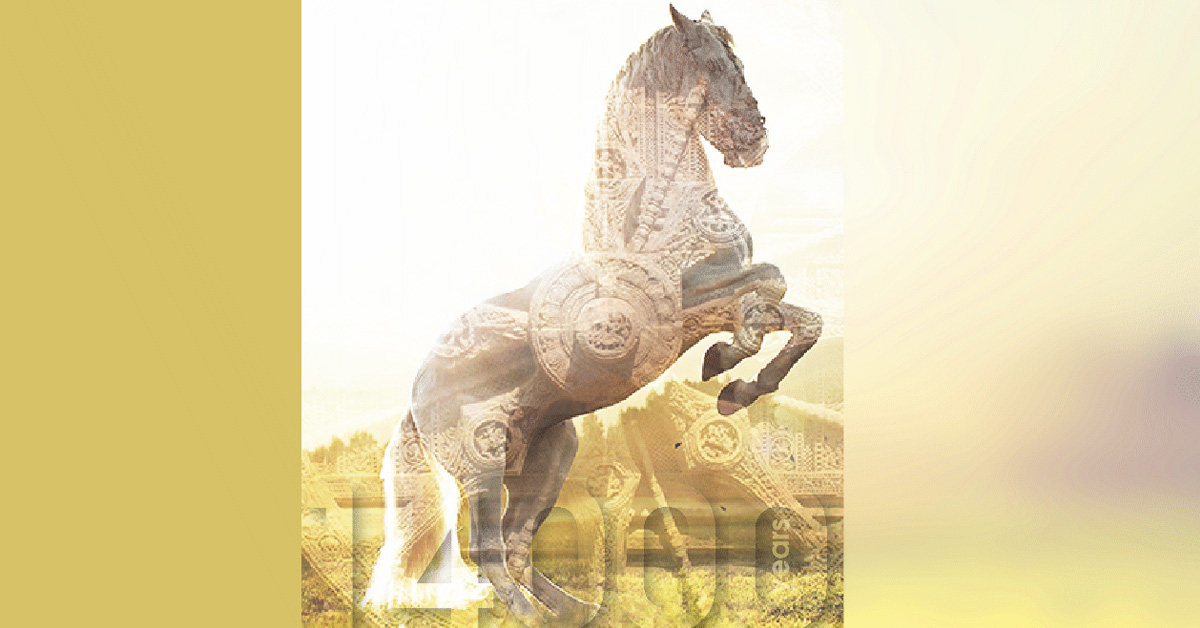There are equal and opposite forces at play in each and every aspect of the Creation. If they cease to exist, then the Creation would also not exist. Duality, thus, is a very important part of everything that makes up this Creation. For us to understand darkness, there needs to be light. Similarly to know happiness, there needs to be sorrow. Nothing in Creation exists in isolation. Every action has an equal and opposite reaction. Every bhog (pleasure) has a rog (pain).
Whatever physical desires that one indulges in, whether it is food or sexual pleasure, it causes the body to age. The spices in food, which render ‘that’ taste, not only lead to corrosion of the top layer of the intestines but also cause hyperactivity that speeds up the process of ageing in the body. Similarly, sexual indulgence leads to the loss of vital fluid called sukra. In fact, the term coined in Ayurveda for sexual pleasure is ‘sukranash’ or ‘loss of sukra’.
According to Ayurveda, human body is composed of seven dhatus – rasa, rakta, mansa, medas, asthi, majja and sukra. These seven dhatus are connected such that loss of one leads to the loss of those preceding it as well. For example, loss of rasa does not affect the other dhatus but loss of rakta, would lead to loss of both, rakta and rasa. So if one were to loose sukra, then it would result in loss of all the other six dhatus as well. This is the reason that so much importance has been given to celibacy or brahmcharya by our sages and rishis. There are techniques in Yoga to conserve the sukra and to transform the conserved sukra into ojas, a subtler dhatu, responsible for the extraordinary radiance around a person. At an advanced stage, the ojas transforms into tej, which accounts for the mesmerizing magnetism exuded by yogis. Sukra also plays a pivotal role in the awakening of the semi-dormant kundalini force.
King Yayati, an ancestor of the Pandavas, indulged in a lot of physical pleasures through his life. As a result, he started ageing when he was 9000 years old. His withering body and diminishing glow and senses made him unhappy. He performed severe penance to redeem his youth. He was then given the boon to exchange his old age with anyone who was willing to gift him their youth. He asked his son Puru, who willingly granted his father’s wish. King Yayati regained his youth, and went on to enjoy physical pleasures for about 14,000 years. Even after so many years, he still craved for more pleasure. It finally occurred to him that there is no end to the physical pleasure. He returned Puru his youth back and told him Puru to get over these physical desires.
So if even after 14000 years of indulgence, Yayati’s desire for physical pleasures was not satiated, then surely there is no end to it. The key to satisfaction is to rise over these desires, something which often eludes the greatest of ascetics…
Long back, I met a Baba ji who was performing penance in the Himalayas. I asked him, how he took care of his sexual needs. His face turned red and instead of answering my question, he angrily told me to go away. I was stunned that a person who was living in the Himalayas could be affected by something so physical and basic and react at just the mention of the word… indicating that going to Himalayas does not mean that you have got over your Vrittis and Vasanas. Himalaya is not a mountain but a state of mind, so going to a tirtha in Himalayas is pointless unless you have conquered yourself. Himalaya is moksha and the desire to be in its lap has to be the desire for moksha, which is an ego-less state.
While Ayurveda emphasizes on celibacy, it does not prescribe suppression of natural urges. If one has the urge to rest or indulge sexually, and if instead he/she suppresses that urge, it results in disease in the body. So then what is the solution? How does one practice brahmcharya without suppressing the urges of the body?
The answer lies in “ek tatva nirantar abhyas”, that is, one-pointed focus under the guidance of Guru. If the focus of the person remains on the One, then nothing can shake or affect that person and the need to suppress does not arise.





